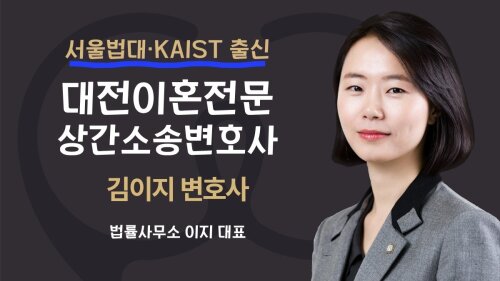Best Child Custody Lawyers in Seo-gu
Share your needs with us, get contacted by law firms.
Free. Takes 2 min.
Free Guide to Hiring a Family Lawyer
List of the best lawyers in Seo-gu, South Korea
About Child Custody Law in Seo-gu, South Korea
Child custody in Seo-gu, South Korea, falls under the national legal framework, primarily regulated by the Korean Civil Act and Family Litigation Act. Child custody issues often arise during divorce or separation and involve determining with whom the child will live and who will make important decisions about the child’s upbringing. Courts in Seo-gu, and throughout Korea, prioritize the child’s best interests when making custody decisions. Parental responsibilities, the needs and age of the child, and the stability of each parent are key factors considered in custody arrangements.
Why You May Need a Lawyer
Legal guidance is crucial in child custody cases because the outcomes significantly impact both parents and the child’s future. You may need a child custody lawyer if you are facing any of the following situations:
- Going through a divorce and seeking custody of your child
- Worried about your child’s welfare with the other parent
- Wish to modify an existing custody order
- Experiencing disputes over visitation rights
- Have concerns about international child abduction or relocation
- Need to enforce a custody or visitation order
- Want advice on legal parental rights and obligations
An experienced lawyer can help you navigate the complex local legal system, present your case effectively, and protect your rights and those of your child.
Local Laws Overview
Child custody in Seo-gu is governed by national and local interpretations of the Korean Civil Act. The law distinguishes between legal custody (the right to make decisions about the child’s upbringing) and physical custody (with whom the child lives). Normally, unmarried or separating parents must decide on both types of custody, or the court will determine the arrangement.
Key points relevant to Seo-gu include:
- Courts generally favor joint parental rights and responsibilities unless there is a clear reason to decide otherwise.
- The child’s age, needs, relationship with each parent, wishes (especially if the child is older), and each parent’s ability to provide a stable environment are considered critical factors.
- If both parents agree on custody arrangements, courts usually respect their agreement unless it harms the child’s welfare.
- In cases of abuse, neglect, or severe conflict, the court may restrict or deny custody or visitation rights.
- Seo-gu Family Court enforces and handles any modifications of custody orders.
Frequently Asked Questions
What is child custody in South Korea?
Child custody refers to the legal and physical responsibility for a child, including decisions about the child’s welfare and where the child will primarily reside.
How is custody determined in Seo-gu?
The court evaluates each parent’s ability to care for the child, the child’s best interests, and each case’s specific circumstances before issuing a custody order.
Can parents reach a custody agreement without going to court?
Yes, if both parents agree on custody arrangements, they can submit their agreement to the court for approval, which is usually granted as long as it supports the child’s welfare.
What happens if one parent wants to change a custody order?
A parent can file a petition with the Seo-gu Family Court to modify an existing custody order. The court will only approve changes if there has been a significant change in circumstances and the change benefits the child.
Do grandparents or other relatives have custody or visitation rights?
Generally, only parents have custody rights, but in certain cases, other relatives can request visitation or custody if it is in the best interest of the child.
Can a parent take the child abroad without consent?
Not usually. If there is an existing custody order, a parent typically needs either the other parent’s consent or a court’s permission to take the child out of the country.
What should I do if the other parent is not following the custody order?
File a complaint or petition for enforcement with the Seo-gu Family Court. The court can order compliance or impose penalties on the non-cooperating parent.
Are fathers less likely to be granted custody in Seo-gu?
The law is gender-neutral. The court considers the child’s best interests, and either parent can be granted custody based on the circumstances.
Does the child’s opinion matter in custody cases?
Yes, especially if the child is old enough to express a clear and reasoned preference. The court may consider the child’s wishes as one of several important factors.
What happens if there is domestic violence or abuse involved?
If credible evidence of domestic violence or abuse exists, the court may limit or deny custody or visitation rights to the abusive parent to protect the child’s welfare.
Additional Resources
- Seo-gu Family Court: Handles all family law cases, including child custody matters.
- Seo-gu District Office: Provides information about family support services and legal aid.
- Korean Legal Aid Corporation: Offers free or low-cost legal services for qualifying individuals.
- Korea Center for Safe Child: Offers resources and counseling for family and child welfare.
- Ministry of Gender Equality and Family: Central agency for family-related policies and support.
Next Steps
If you are facing a child custody dispute or seeking legal advice in Seo-gu, consider taking the following steps:
- Document all relevant information, such as living arrangements, communication with the other parent, and your child’s needs.
- Contact a family law lawyer familiar with child custody cases in Seo-gu.
- Gather any court orders, agreements, or evidence that could help build your case.
- If immediate protection is needed, inform the court or local authorities to ensure your child’s safety.
- Explore local support services or counseling for your family during this process.
- Stay informed about your legal rights and obligations as a parent.
Early legal advice can make a significant difference in achieving the best possible outcome for you and your child.
Lawzana helps you find the best lawyers and law firms in Seo-gu through a curated and pre-screened list of qualified legal professionals. Our platform offers rankings and detailed profiles of attorneys and law firms, allowing you to compare based on practice areas, including Child Custody, experience, and client feedback.
Each profile includes a description of the firm's areas of practice, client reviews, team members and partners, year of establishment, spoken languages, office locations, contact information, social media presence, and any published articles or resources. Most firms on our platform speak English and are experienced in both local and international legal matters.
Get a quote from top-rated law firms in Seo-gu, South Korea — quickly, securely, and without unnecessary hassle.
Disclaimer:
The information provided on this page is for general informational purposes only and does not constitute legal advice. While we strive to ensure the accuracy and relevance of the content, legal information may change over time, and interpretations of the law can vary. You should always consult with a qualified legal professional for advice specific to your situation.
We disclaim all liability for actions taken or not taken based on the content of this page. If you believe any information is incorrect or outdated, please contact us, and we will review and update it where appropriate.










